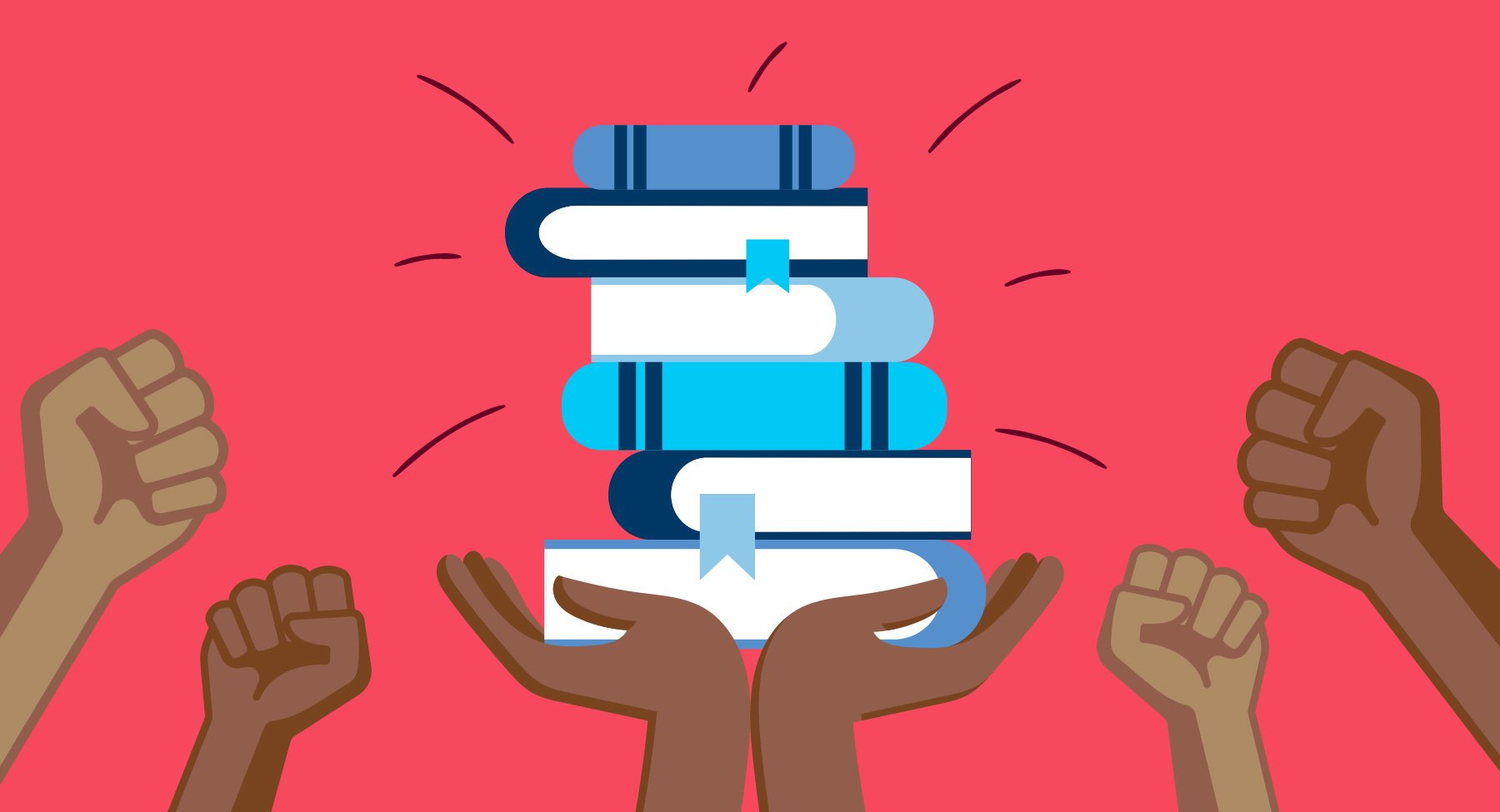Reading Revolution
Most of us know that reading is good. It helps develop empathy, communication skills, and imagination. It improves sleep habits and reduces stress, strengthening neural pathways in the brain. It’s also our primary point of access to the whole of human knowledge.
There are numerous studies connecting childhood literacy to greater economic outcomes as adults. But as great as reading is, if the history of banned books and colonization has taught us anything, it’s that reading can also be dangerous.
Get Caught Reading
May is Get Caught Reading Month. The very name speaks to reading’s subversive potential. But what may strike us now as a cheeky, fun way to encourage reading, throughout many times and places has been an idea with real consequences.
One contemporary example is the story of Malala Yousafzai, a Pakistani woman who grew up in a place where the Taliban had banned girls from attending school. Despite the risks, Malala's father encouraged her to read and write, and through that education, Malala became more aware of the many injustices girls in her community faced. She began to speak out against the Taliban's ban on girls' education, and would go on to become the youngest-ever recipient of the Nobel Peace Prize.
“I have challenged myself that I will read thousands of books,” she once said. “Pens and books are the weapons that defeat terrorism.”
The First Step to Tyranny
Women have been banned from reading throughout much of history, the belief being that intellectual engagement would prevent them from focusing on their domestic duties. They aren’t the only ones to face this kind of intellectual censorship, however. Others include:
Enslaved Africans - Slave owners believed that literate slaves would be more likely to escape and/or organize rebellions.
Indigenous peoples - Colonizers invariably suppress the cultures and traditions of those whom they oppress, often banning indigenous peoples from reading and speaking in their own languages.
Religious minorities - Religious minorities have often been banned from reading certain texts, or from reading altogether. In medieval Europe, many Jews were prohibited from reading the Christian Bible.
Political dissidents - Totalitarian regimes—both near and far—routinely ban books and materials that challenge the ruling party's ideology.
As terrible as it may be, the logic behind these efforts is unimpeachable. It’s true: reading does help people recognize the various ways that they are being oppressed. It does cause them to long for—and feel entitled to—better futures. And it empowers them to find courageous and inventive ways of getting there.
Freedom Schools
As summer approaches, we’re already gearing up for our CDF Freedom School program.
CDF Freedom Schools® have roots in the Mississippi Freedom Summer Project of 1964, which brought college students from around the country to help secure justice and voting rights for Black citizens in the South.
These “schools” provided Black children and youth instruction in reading, writing, humanities, mathematics, and science along with many subjects that weren’t taught in Mississippi public schools, like Black history and constitutional rights. They sought to empower youths to become independent thinkers, problem solvers, and agents of change in their communities.
Worth the Risk
We hope that those of you who get caught reading this month do so under less dire circumstances. But we also recognize that whatever the cost, reading is worth it. We can’t wait to empower other young scholars this summer with the Emmaus House Freedom School. We may not know what the future holds, but we know what it needs: inspired young minds that have been empowered through literacy.

